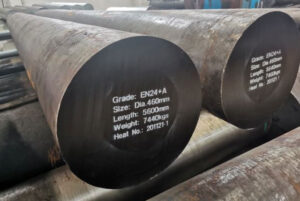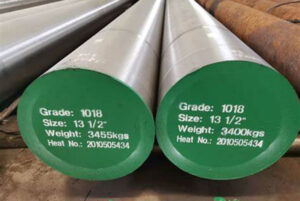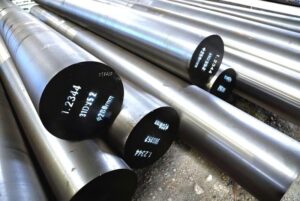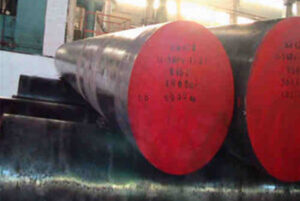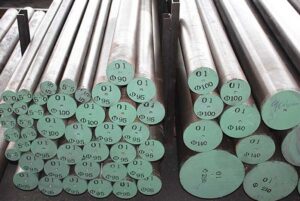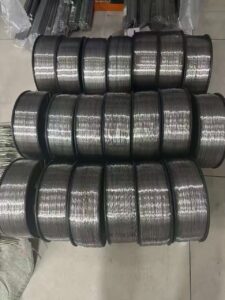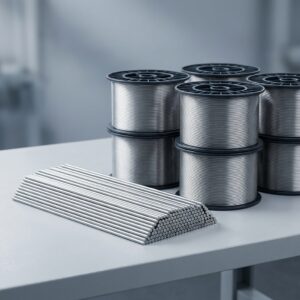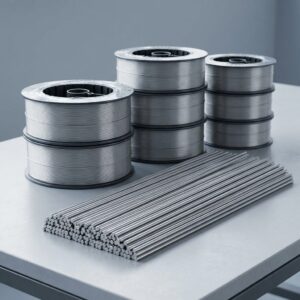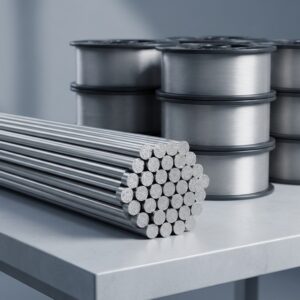Imagine a world without smooth, silent operation of your car engine, the whirring blades of a blender, or the effortless glide of a skateboard. These feats of engineering all rely on a crucial behind-the-scenes player: bearing steel. And within this realm, a champion emerges – the versatile and dependable Special Steel 52100.
An Overview of 52100 Bearing Steel
52100 bearing steel, also known as AISI 52100 or ASTM 52100, is a high-carbon, chromium alloy steel specifically designed for exceptional performance in bearings. It boasts a unique blend of properties that make it a favorite among engineers and manufacturers worldwide.
Key characteristics of 52100 bearing steel:
- Exceptional wear resistance: Imagine millions of rotations without a hitch. The high carbon content in 52100 steel allows it to maintain its shape and resist wear even under immense pressure. Think of it like a tireless athlete enduring a grueling marathon.
- Superior strength: Bearings need to withstand heavy loads without buckling. 52100 steel’s robust structure ensures it can handle significant forces, keeping your machinery running smoothly.
- High fatigue life: Constant stress can take a toll on any material. 52100 steel excels in resisting fatigue, meaning it can endure repeated cycles of stress without succumbing to cracks or failure. Picture it as a seasoned veteran, unfazed by the demands of battle.
- Good hardenability: For bearings to perform optimally, they need a hardened surface that resists wear. 52100 steel readily undergoes heat treatment, achieving the desired level of hardness for peak performance.
These remarkable qualities make 52100 steel the go-to choice for a wide range of demanding applications. But before we delve into its uses, let’s take a closer look at its composition and properties compared to other metal powders used in bearing production.
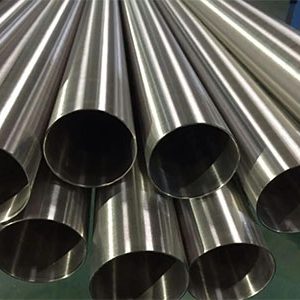
Composition and Properties of 52100 Bearing Steel vs. Other Metal Powders
While 52100 reigns supreme, other metal powders have their place in the bearing world. Here’s a breakdown of their composition and properties to understand their strengths and limitations:
| Metal Powder | Composition (wt%) | Key Properties | Advantages | Disadvantages | Applications |
|---|---|---|---|---|---|
| 52100 | C: 0.95-1.10, Cr: 1.30-1.60, Mn: 0.30-0.50, Si: 0.20-0.35 | High wear resistance, excellent strength, good hardenability | readily available, cost-effective, versatile | Can be brittle if not heat treated properly | Ball bearings, roller bearings, roller elements |
| AISI M-50 | C: 0.80-1.10, Cr: 4.00-4.50, Mo: 4.00-4.50, V: 1.00-1.50 | Exceptional hot hardness, good wear resistance | Maintains strength at high temperatures | More expensive than 52100 | High-performance bearings in challenging environments |
| AISI 420 | C: 0.30-0.40, Cr: 12.00-14.00 | High corrosion resistance, good wear resistance | Resists rust and moisture | Lower strength compared to 52100 | Ball bearings, roller bearings in applications with moisture exposure |
| AISI 304 Stainless Steel | Cr: 18.00-20.00, Ni: 8.00-10.00 | Excellent corrosion resistance, good formability | Resists rust and chemicals | Lower strength and wear resistance compared to 52100 | Bearings in applications requiring corrosion resistance over high load capacity |
| AISI H13 Tool Steel | C: 0.30-0.45, Cr: 5.00-5.50, Mo: 1.30-1.60, V: 0.90-1.20 | Excellent dimensional stability, good wear resistance | Maintains shape during heat treatment | More expensive and requires specific machining techniques | Roller bearings |
Applications of Special Steel 52100 Bearing Steel
52100 bearing steel isn’t just a champion; it’s a workhorse, powering a diverse range of applications that demand exceptional performance. Let’s explore some key areas where 52100 steel reigns supreme:
- Automotive: From the heart of your engine (crankshafts, camshafts) to the wheels that keep you rolling (ball bearings, roller bearings), 52100 steel ensures smooth operation and durability. It can handle the immense pressure and friction generated by a car’s engine, keeping your ride comfortable and safe.
- Aerospace: The unforgiving environment of flight demands the best. Aircraft bearings, landing gear components, and even rocket engine parts often rely on 52100 steel’s strength and fatigue resistance to withstand extreme loads and temperatures. Imagine a jet soaring through the sky – 52100 steel plays a crucial role in its smooth and safe operation.
- Machine Tools: Precision and reliability are paramount in machine tools. Ball screws, linear guides, and various bearing components utilize 52100 steel to ensure minimal wear and tear, guaranteeing accurate cuts and movements for extended periods. Think of it as the silent partner behind the precise operations of a CNC machine.
- Power Transmission: Whether it’s a wind turbine harnessing the power of the wind or a giant industrial gearbox transferring power, 52100 steel is often the unseen hero. It tackles the challenge of heavy loads and constant rotation, keeping power flowing efficiently.
- Construction Machinery: From the mighty excavators that reshape landscapes to the heavy-duty trucks that haul tons of materials, 52100 steel plays a vital role. It endures the harsh conditions and immense stress these machines face, ensuring their smooth operation and long lifespan.
These are just a few examples – the versatility of 52100 steel extends to various applications, including:
- Bicycles (ball bearings in hubs and bottom brackets)
- Electric motors and generators (bearings for shafts)
- Agricultural machinery (bearings in transmissions and axles)
- Appliances (bearings in motors and gearboxes)
The ability of 52100 steel to be shaped, heat-treated, and machined into various bearing components makes it a truly adaptable material for countless engineering needs.
Specifications, Sizes, Grades, and Standards of 52100 Bearing Steel
Understanding the technical specifications of 52100 steel is crucial for engineers and manufacturers to select the right material for their application. Here’s a breakdown of key factors:
Chemical Composition:
- Carbon (C): 0.95 – 1.10 wt% (primary contributor to hardness and wear resistance)
- Chromium (Cr): 1.30 – 1.60 wt% (improves hardenability and corrosion resistance)
- Manganese (Mn): 0.30 – 0.50 wt% (enhances hardenability and improves machinability)
- Silicon (Si): 0.20 – 0.35 wt% (deoxidizer, improves hardenability)
- Phosphorus (P) & Sulfur (S): Limited amounts (minimize brittleness)
Standards:
- ASTM 52100 (American Society for Testing and Materials)
- AISI 52100 (American Iron and Steel Institute)
- EN 100Cr6 (European Standard)
- JIS SUJ2 (Japanese Industrial Standard)
Forms and Sizes:
52100 steel is available in various forms to suit specific bearing manufacturing needs:
- Bars: Round, square, and flat bars are commonly used for machining bearing components. Sizes range from a few millimeters to several centimeters in diameter/width/thickness.
- Tubes: Seamless steel tubes are used for manufacturing roller bearings. Sizes vary depending on the application.
- Wire rod: Used for the production of bearing balls through a cold heading process. Diameters typically range from a few millimeters to under 1 cm.
Grades:
Several grades of 52100 steel exist, with slight variations in chemical composition for specific performance requirements. These may be designated by adding a suffix to the base material number (e.g., 52100H for a higher carbon content).
Selection Considerations:
Choosing the appropriate form, size, and grade of 52100 steel depends on various factors, including:
- Type of bearing: Ball bearings, roller bearings, and specific bearing geometries have different size and performance requirements.
- Load capacity: The bearing needs to handle the anticipated loads without deformation.
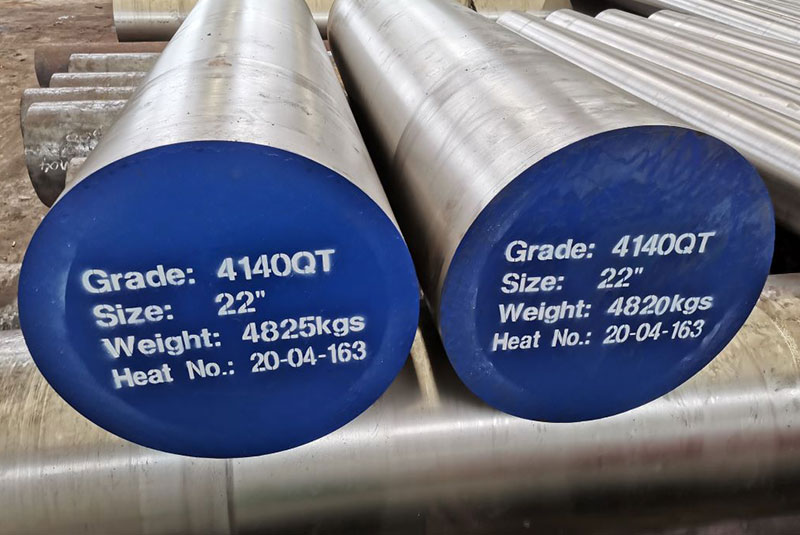
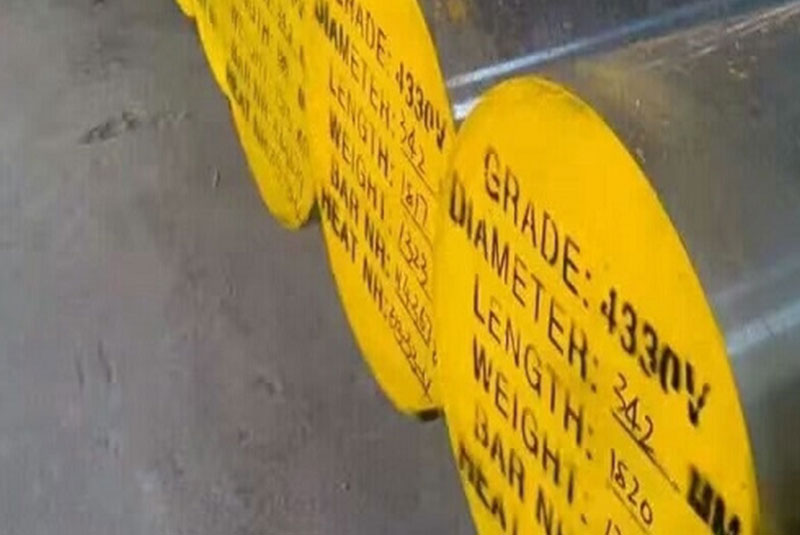
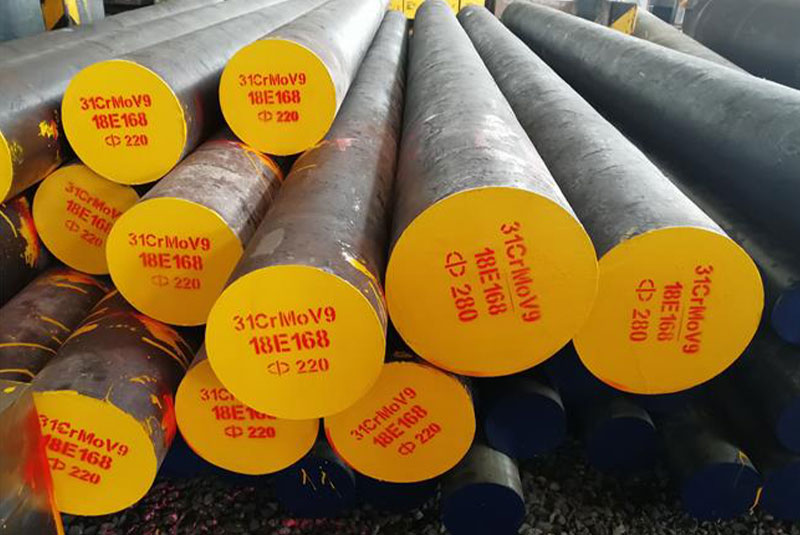

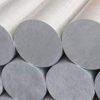
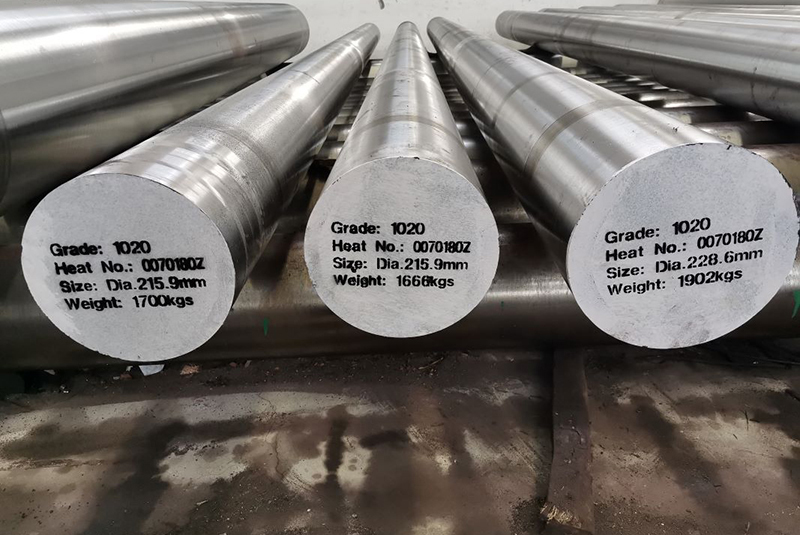
Advantages and Disadvantages of Special Steel 52100 Bearing Steel
Like any material, 52100 bearing steel has its own set of pros and cons. Understanding these advantages and disadvantages is crucial for making informed decisions in your engineering projects.
Advantages:
- Exceptional Wear Resistance: The high carbon content makes 52100 steel a champion in resisting wear and tear. This translates to longer bearing life and smoother operation in demanding applications. Imagine a bearing lasting for millions of cycles without succumbing to wear – that’s the power of 52100 steel.
- Superior Strength: Bearings need to be tough enough to handle significant loads without bending or breaking. 52100 steel’s robust structure ensures it can take on heavy-duty tasks, keeping your machinery running flawlessly. Think of it as the backbone of a bearing, providing the necessary strength to withstand pressure.
- Good Hardenability: For bearings to perform optimally, they require a hardened surface to resist wear. The good hardenability of 52100 steel allows it to achieve the desired level of hardness through heat treatment processes. This ensures the bearing’s outer surface is tough enough to endure contact stress, while the core remains ductile for overall strength.
- Cost-Effective: Compared to some specialty bearing steels, 52100 offers a good balance between performance and affordability. Its wide availability and established manufacturing processes make it a cost-effective choice for many applications.
- Versatility: The ability to be shaped, heat-treated, and machined into various bearing components makes 52100 steel a highly adaptable material. This versatility allows engineers to design bearings for diverse applications without needing to switch to entirely different steel types.
Disadvantages:
- Brittleness: If not heat treated properly, 52100 steel can become brittle, increasing the risk of cracking under excessive stress. This highlights the importance of following proper heat treatment procedures to achieve the optimal balance of hardness and toughness in the final bearing component.
- Corrosion Resistance: While not inherently prone to rust, 52100 steel isn’t the best choice for applications where constant exposure to moisture is a concern. For such environments, bearing steels with higher chromium content or stainless steel options might be a better fit.
- Machinability: Compared to some lower-carbon steels, 52100 steel can be slightly more challenging to machine. This can add to production costs, especially for intricate bearing designs. However, advancements in machining techniques and tooling have mitigated this challenge to a significant extent.
In essence, 52100 steel offers a compelling combination of wear resistance, strength, affordability, and versatility. However, it’s crucial to consider its limitations, particularly brittleness in improper heat treatment and lower corrosion resistance compared to specialized steels. By carefully weighing the pros and cons and selecting the appropriate grade and heat treatment process, you can leverage the strengths of 52100 steel to create high-performing bearings for your specific needs.
Suppliers and Pricing of Special Steel 52100 Bearing Steel
Sourcing high-quality 52100 steel is essential for manufacturing reliable bearings. Here’s a glimpse into the supplier landscape and pricing considerations:
Suppliers:
52100 steel is a widely produced material, with numerous reputable suppliers around the globe. Some prominent players include:
- North America: Ryerson,Nucor, Cleveland Steel & Tube, JMC Steel
- Europe: Schmolz + Bickenbach, Thyssenkrupp, ArcelorMittal
- Asia: Nippon Steel & Sumitomo Metal, POSCO, Baosteel
It’s recommended to research and compare offerings from various suppliers to find the best combination of price, quality, and service for your specific needs. Factors to consider include:
- Material certifications: Ensure the supplier provides proper certifications to verify the steel meets the required standards (e.g., ASTM 52100).
- Form and size availability: Choose a supplier that offers the specific form (bars, tubes, wire rod) and size required for your bearing production.
- Heat treatment capabilities: If you require pre-heat-treated steel, look for suppliers with in-house heat treatment capabilities or partnerships with reputable heat treatment providers.
- Minimum order quantities: Be aware of the supplier’s minimum order quantities, especially if you’re dealing with smaller projects.
Pricing:
Pricing for 52100 steel can vary depending on several factors:
- Form: Bars, tubes, and wire rod typically have different pricing structures.
- Size: Larger diameter.
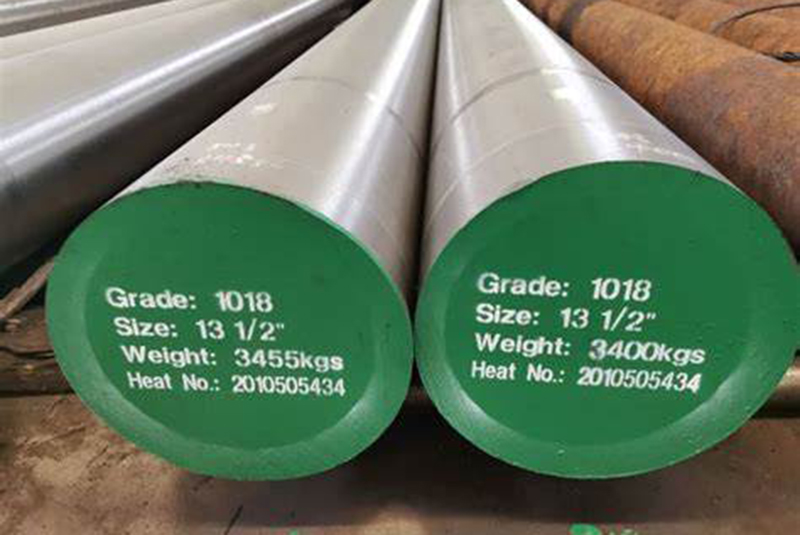
FAQ
Here’s a breakdown of frequently asked questions regarding 52100 bearing steel, providing clear and concise answers:
Q: What are some alternatives to 52100 steel for bearings?
A: Several alternative bearing steel options exist, each with its own advantages and disadvantages. Here are a few examples:
- AISI M-50: Offers exceptional hot hardness and wear resistance, ideal for high-temperature applications but comes at a higher cost.
- AISI 420: Boasts good corrosion resistance and wear resistance, suitable for environments with moisture exposure but has lower overall strength compared to 52100.
- AISI 304 Stainless Steel: Excellent corrosion resistance is its main strength, making it ideal for wet environments, but it has lower strength and wear resistance compared to 52100.
- AISI H13 Tool Steel: Provides exceptional dimensional stability and good wear resistance, often used for roller bearings, but requires specific machining techniques and can be more expensive.
The best alternative depends on the specific application’s requirements. Consider factors like load capacity, operating temperature, corrosion resistance needs, and budget constraints when making your choice.
Q: How can I improve the wear resistance of 52100 steel bearings?
A: Several methods can enhance the wear resistance of 52100 steel bearings:
- Optimizing heat treatment: Proper heat treatment processes like quenching and tempering achieve the desired balance of hardness and toughness, maximizing wear resistance.
- Surface finishing: Applying a smooth surface finish to bearing components reduces friction and wear. Techniques like grinding, polishing, and superfinishing can be employed.
- Lubrication: Using appropriate lubricants reduces friction and wear at the bearing contact surfaces. Selecting the right lubricant type and viscosity is crucial.
- Coating: Applying thin coatings with low friction coefficients, like nitriding or carburizing, can further improve wear resistance.
Q: Can 52100 steel bearings be used in wet environments?
A: While 52100 steel offers some level of corrosion resistance due to its chromium content, it’s not the ideal choice for constant exposure to moisture or harsh chemicals. For such environments, bearings made from AISI 420 stainless steel or other corrosion-resistant steels might be a better option.
Q: How easy is it to machine 52100 steel?
A: Compared to lower-carbon steels, 5200 steel can be slightly more challenging to machine due to its higher carbon content. However, advancements in machining techniques and tooling have significantly reduced this challenge. Using the appropriate cutting tools, speeds, and feeds can ensure efficient machining of 52100 steel components.

